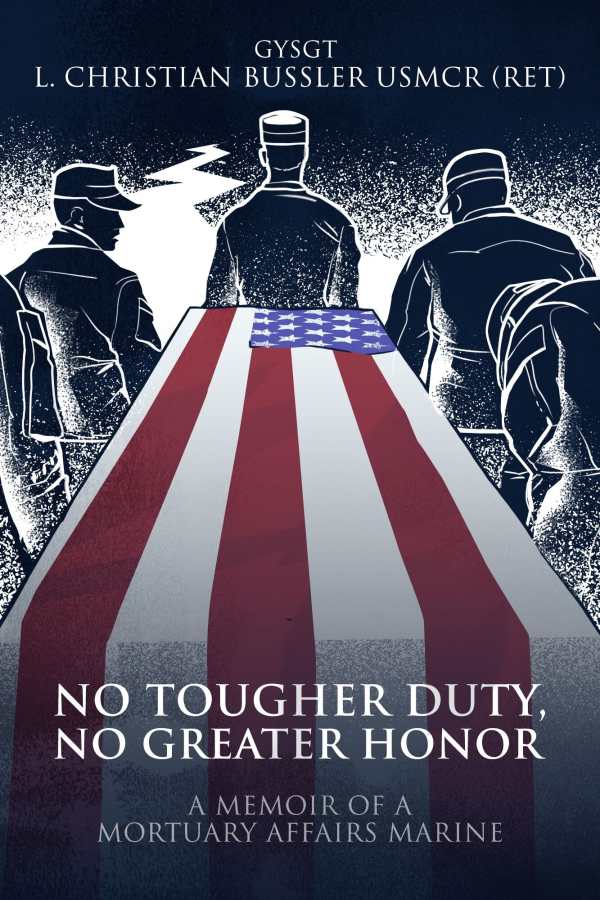No Tougher Duty, No Greater Honor
A Memoir of a Mortuary Affairs Marine
Bussler’s memoir is a gripping and edifying tour de force.
Gunnery Sergeant L. Christian Bussler’s No Tougher Duty, No Greater Honor: A Memoir of a Mortuary Affairs Marine recounts three tours of duty during the Iraq War, during which he recovered and identified the remains of fallen service members and preparing them for honorable transport home. Bussler tells an unforgettable story of bravery, reverence, camaraderie, and sacrifice, and he offers a staggering portrait of an “ugly world filled with all of its lethalities and bloody ends.”
The book is written in an impeccable first-person narrative style. Bussler, a reserve infantryman, begins with his call to active duty in 2002 as part of the first wave of troops to invade Iraq. He belonged to the only mortuary affairs (MA) platoon in the marine corps. Knowing the grim reality of the task, “none of us ever wanted to be activated to do the mission in a wartime capability,” Bussler writes. “Even though Death might ride his pale horse among our ranks in the coming days, we would not shy away from our duty.”
Duty is a central aspect of the book, and Bussler depicts his respect for it and his performance of it without bravado. Whether he is reverently observing three brothers bid a noble farewell to the tattered corpse of their sibling, draping a crisply ironed American flag over a service member’s coffin, performing battlefield searches for human remains that were “so catastrophically shattered” by IED attacks that their body parts required multiple body bags, or volunteering for a third tour because he trusted his comrades’ lives to no one else, commitment is intrinsic to the soldier and the man.
The book’s large-print format and bulk contributes to a textbook-like reading experience. Even so, cinematic prose captures life in an Iraqi combat zone. Sights, sounds, and smells are distinct, and the nerve-fraying anxiety of witnessing “the daily visages of high-velocity death” penetrates. Bussler also uses beautiful lyricism to describe landscapes and scenes. Humorous passages add lightheartedness to this solemn tale, and profanity-laced storytelling makes Bussler and his brothers-in-arms feel authentic.
Bussler’s group of MA marines processed their first remains during the push to Baghdad toward the end of their first tour in April 2003. He volunteered for his second tour in 2004. The war’s atmosphere had changed since his first deployment—particularly, with the ominous presence of insurgents and the prevalence of IED attacks—and in consideration of this, Bussler offers precise insights about the war’s faltered trajectory.
Bussler’s third tour stands out as his most harrowing and soul-stealing. Bussler conveys heartrending details about his amplified role as a “combat coroner,” and the “incomprehensible assault” on his senses from processing death almost daily.
Suffering from PTSD after his service, Bussler started writing to work through the emotional toll of his experiences. Bussler is both a combat veteran and a gifted writer, and his memoir is a gripping and edifying tour de force.
Reviewed by
Amy O'Loughlin
Disclosure: This article is not an endorsement, but a review. The publisher of this book provided free copies of the book and paid a small fee to have their book reviewed by a professional reviewer. Foreword Reviews and Clarion Reviews make no guarantee that the publisher will receive a positive review. Foreword Magazine, Inc. is disclosing this in accordance with the Federal Trade Commission’s 16 CFR, Part 255.

